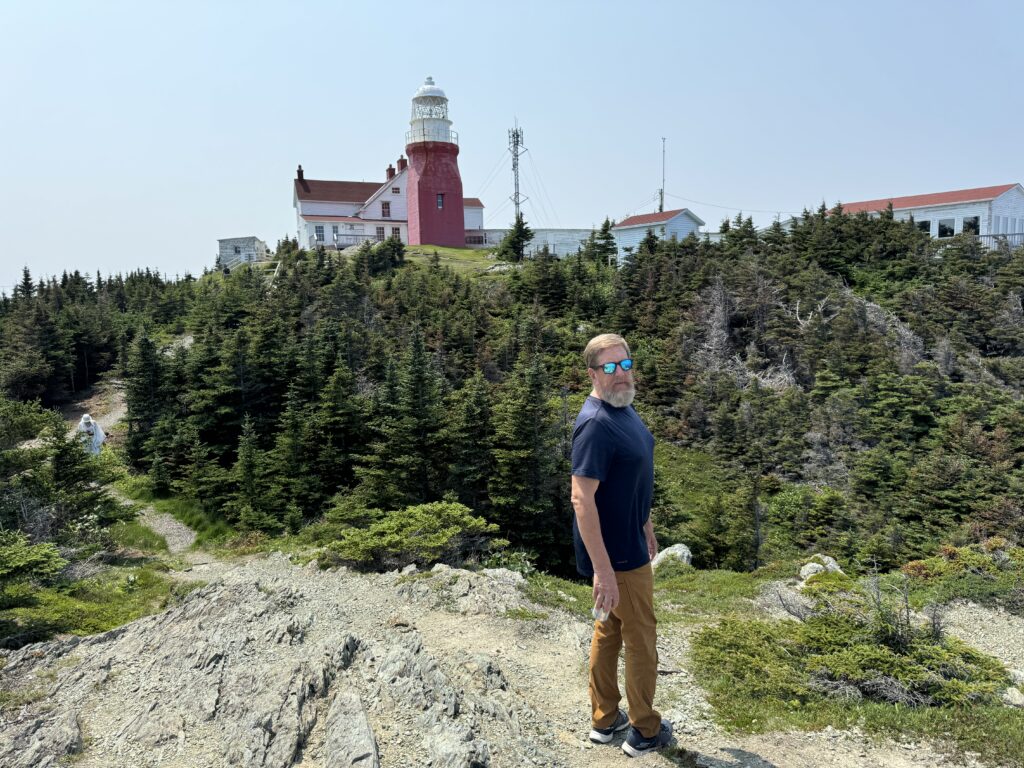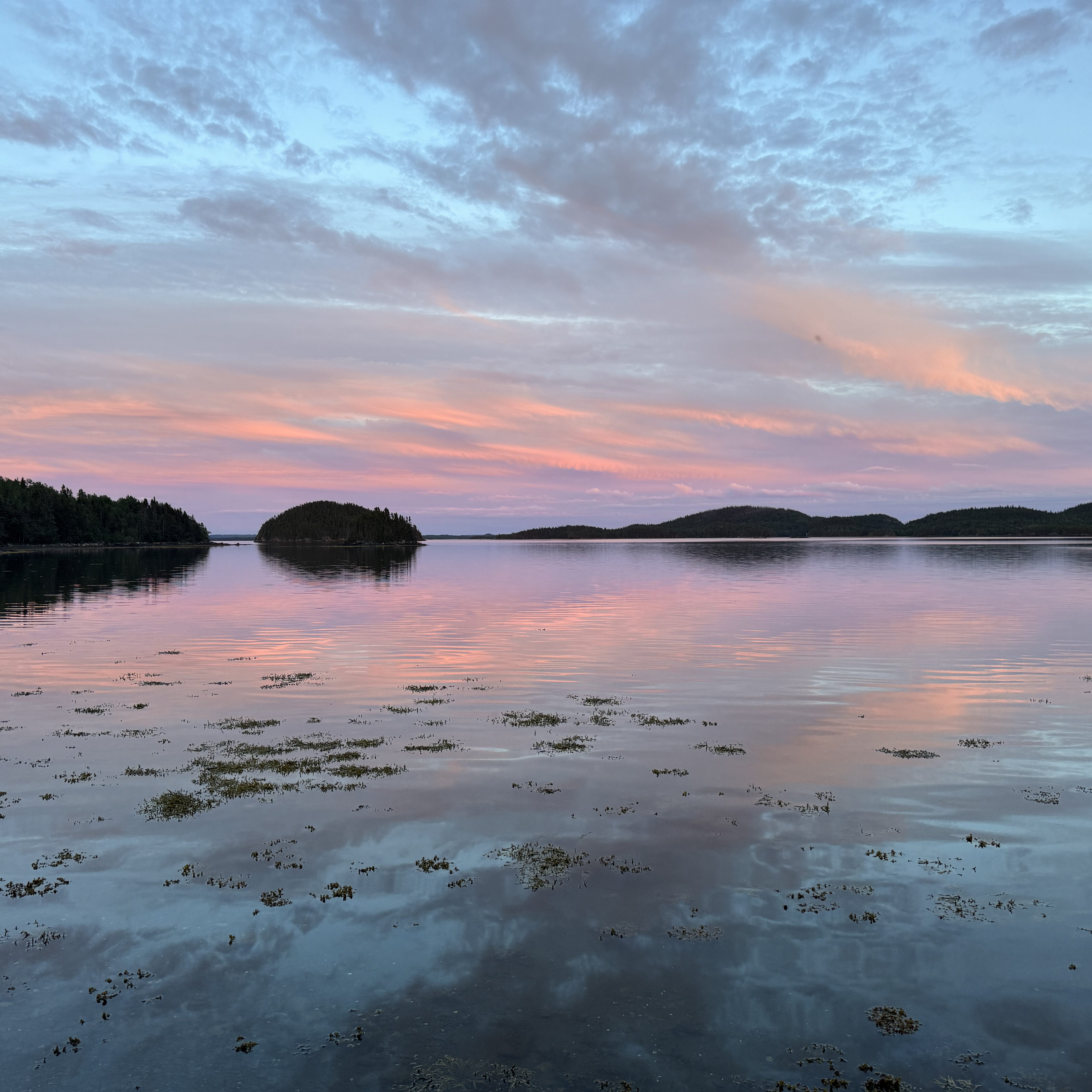See The Rock. From the southwestern Port aux Basque where the Marine Atlantic ferry deposits modern explorers, to the northwestern tip of the ancient Viking landfall. Visit the New World Isle of Twillingate with the commanding views of North Atlantic. Search the horizon for drifting giants conspiring toward Titanic II. Tread on tablelands and rugged coastline; take in colorful sheds and laundry blowin’ in the wind. Escape the American heat wave, sleep on Crown land, photograph a caribou; eat fresh fish and hand-cut chips. Watch out for moose so numerous that they outnumber the population.
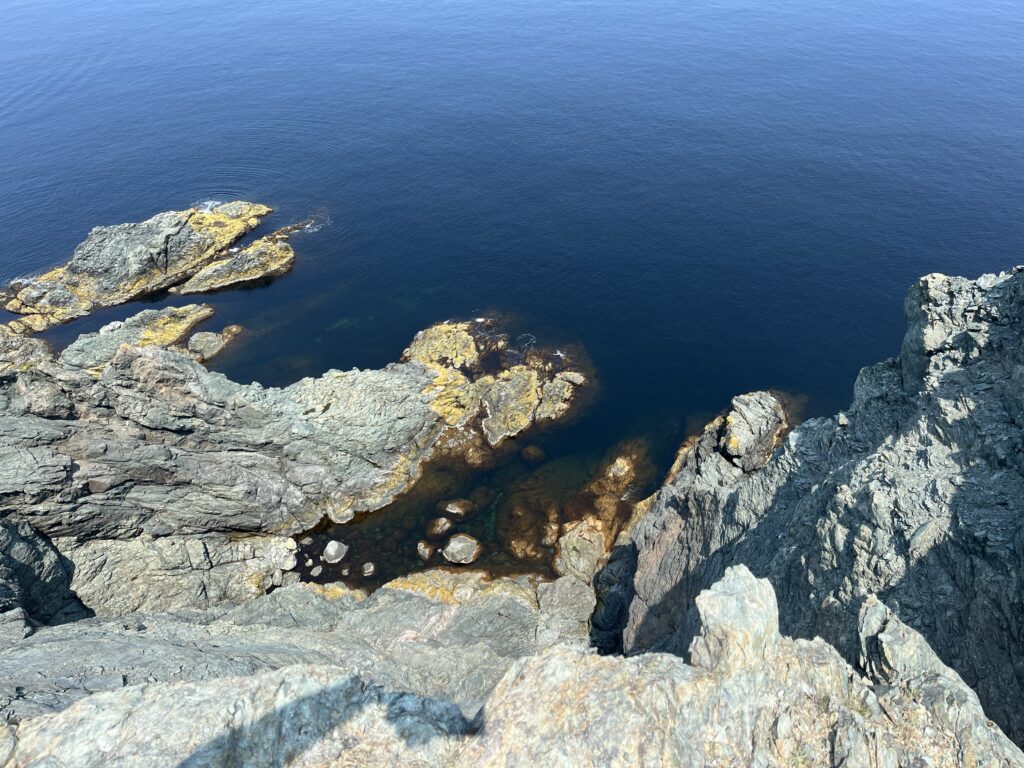
Live The Rock. Drive long miles on pothole strewn roads. Practice mental math converting km/hr to the correct number on the speedometer. Admire vast expanses of Crown land made up of dense black fir forests on steep hillsides that spill on to bouldered beach coastlines. Wonder how to tent there. Perhaps a brave Swiss Army knife rig with rooftop tent and stove stored in a secret body panel could overnight on a logging access road for an overlanding outfitter commercial. It is no place for nomads in a tent and a screened room. Find better luck tucked in to a Provincial Park that dots the Rock, offering forested primitive sites perched on the shores of coves and tickles, picturesque but harboring a camoflagued enemy.
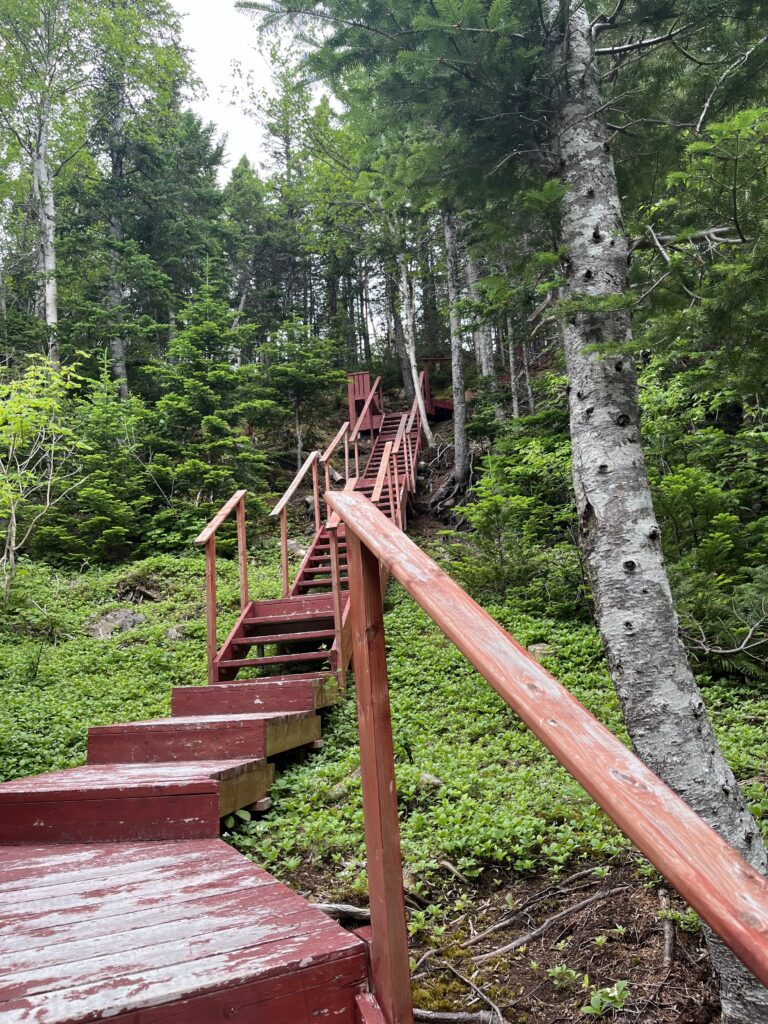
As days become weeks, we travel closer to a dead end. Someone is sabotaging the Ala’suina, a brand new ocean liner built to ferry tourists 15 hours from North Sydney Nova Scotia to St John Newfoundland and back. Three planned trips a week; Monday, Thursday, and Saturday. Its maiden voyage has now been thrice delayed. No crossings yet. When the fishing boats stopped sailing due to the cod moratorium of 1992, the Canadian government created a program to relocate the fishermen to the mainland. Our only hope may be for a modern day program to relocate tourists trapped snapping pictures of the abandoned fishing villages from the 90’s. It’s a vicious cycle.
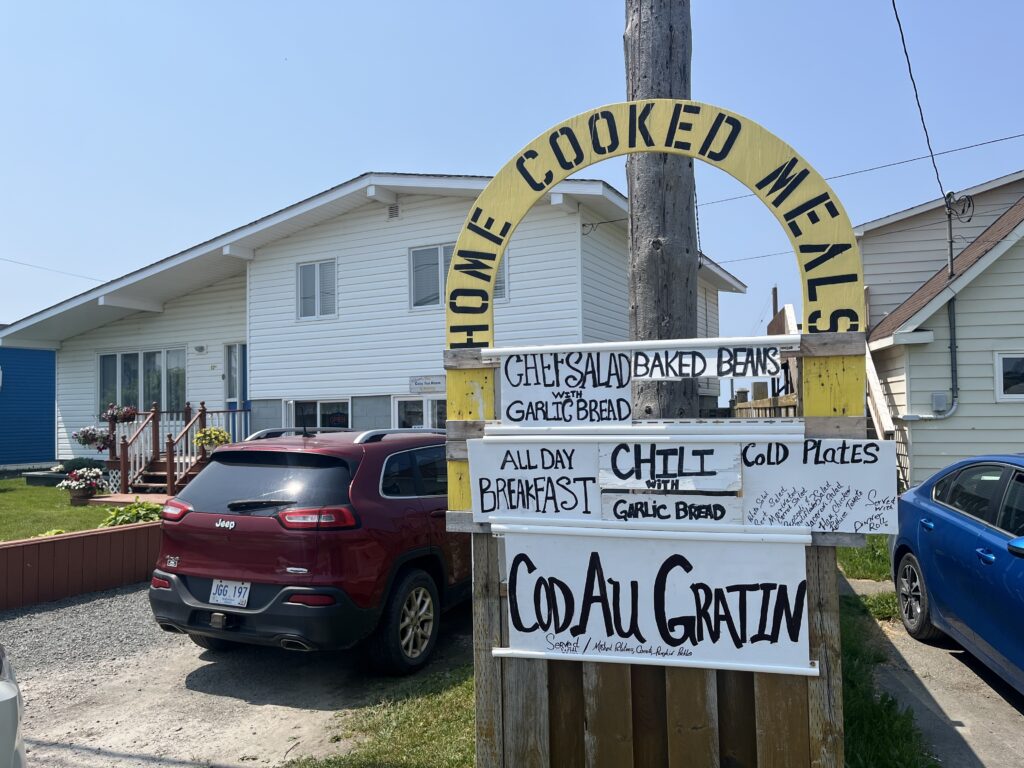
Maybe it is not sabotage. Maybe they just bought a Swedish ferry made in China and the instructions were lost in translation. No one in the picturesque village of Twillingate knows. We meet another couple from Florida dining at the Tea Room for Wednesday’s special – Cod au Gratin, Baked beans and Toutons. Having reached the eastern dead end at St. John’s, they are back-tracking the 800 km to the only working ferry on the western tip. Born and raised in Twillingate, Tara the librarian senses that the tourist migration is off. Her big summer book sale is at risk. We are the only shoppers. For reasons known only to Mother Nature, the icebergs did not come this year to the self proclaimed Iceberg Capital of the World. We count our blessings having circled a giant out of St. Anthony in a row boat.
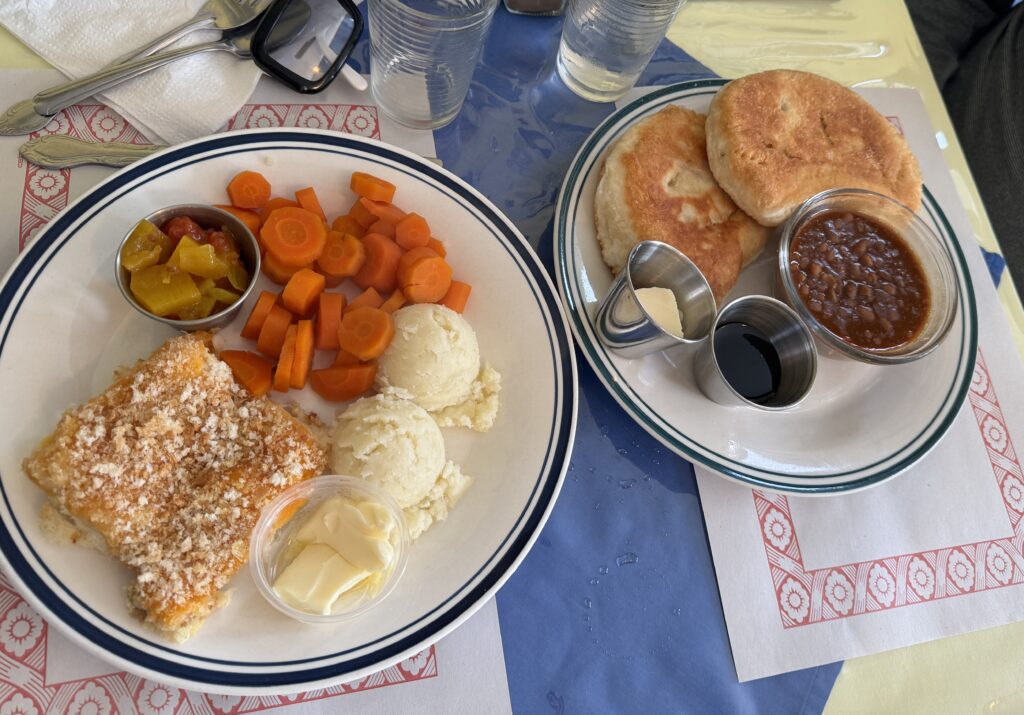
We’ve grown weary of the artisan galleries and the shed-to-museum conversions designed to service the Prevost charter bus. Maybe we are morphing in to locals. We frequent the Irving Gas station in New Island because they bake their own molasses raisin loafs on site. We shop the weekly flyer deals at Foodland using the checkers courtesy card. We can pick out the Liquor Express marquis from the highway at 1/2 kilometer away. We know the location of every quasi-public 110v outlet in the provincial park where we run an extension cord to the Li-Pol to keep the fridge running and devices charged because the sun did not shine today, nor yesterday, and most likely will not tomorrow.
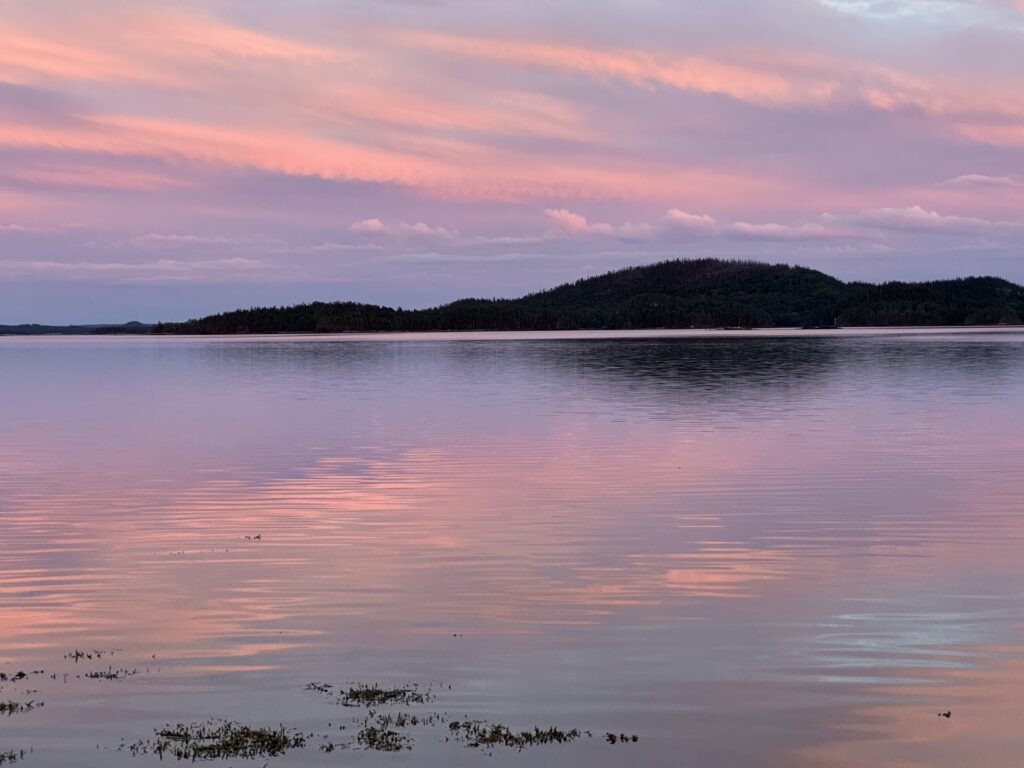
A crowd from the charter makes its way with careful steps to the Long Point lighthouse at the edge of Twillingate Isle to gaze out over Iceberg Alley. The point is famous as the closest land to the wreck of the Titanic. Like Newfoundland ambassadors, we fill the tour group in on the current, less than favorable dynamics of the floating giants this year, of the caribou that have migrated out of Port au Choix early due to warming on the Northern Peninsula, to the best hole-in-the-wall Cafe for home cooked Newfie food. Stopping to photograph a quippy mural on a closed food truck, a group of tourists mistake Eric for the owner and asks when he’ll be open and if the fries are hand-cut. One hour, he shouts, after he has had a chance to run to Foodland for supplies. They’ll come back. Maybe we have been here too long.
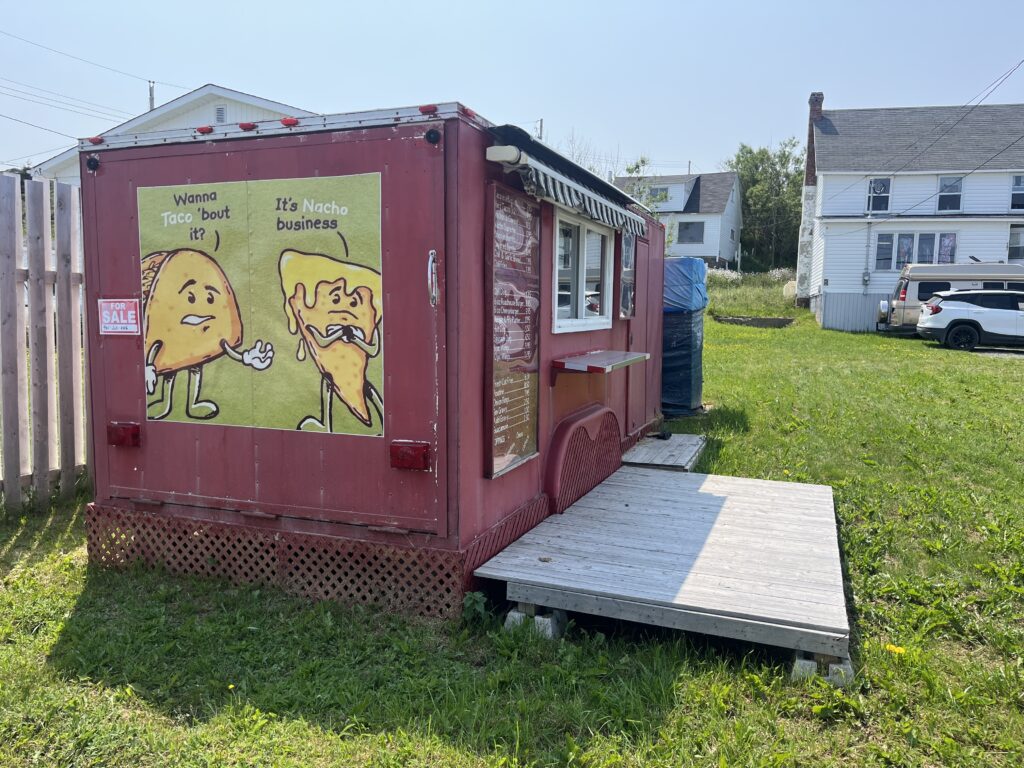
At camp in curiously named Dildo Run Provincial Park, we are learning to slow down and make peace with our neighbors. Neither of us can make significant advances towards victory. In the open, we are toast. But our neighbors are slow in the confines of a Clam or Trango, and you can backhand them til their smushed carcass falls atop your sleeping bag or pillow, or just sticks to your skin for you to wipe away. Our neighbors aren’t going anywhere, and until someone reads that Swedish/Chinese ferry manual, neither are we. By day, the ritualistic burning of incense coils marks a tenuous cease fire with the neighbors. By night, tiny streaks of blood on a crisp white Trango ceiling and red welts on ankles and necks are evidence of a broken truce.
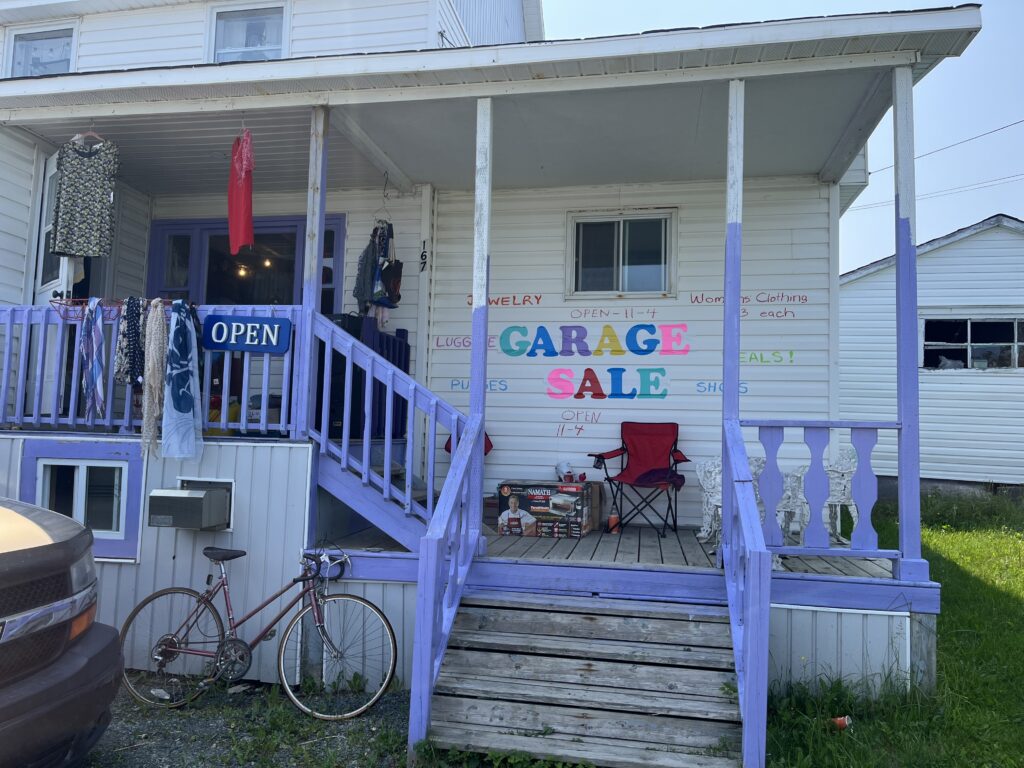
We have transitioned from tourists to unemployed residents of the Rock, helping to stack books at the library, and guide tourists to top destinations.. The maintenance man tidying up the comfort station in camp stops to chat with Eric. He swears Eric was here last summer and insists that he speaks with a Newfie accent. Who are we to argue?
